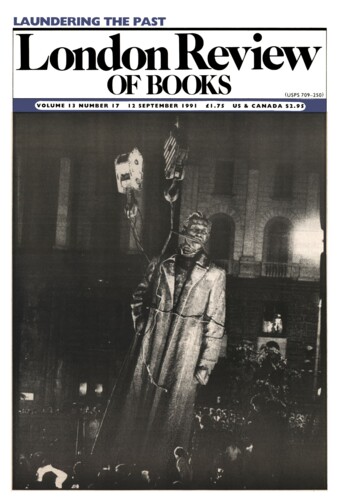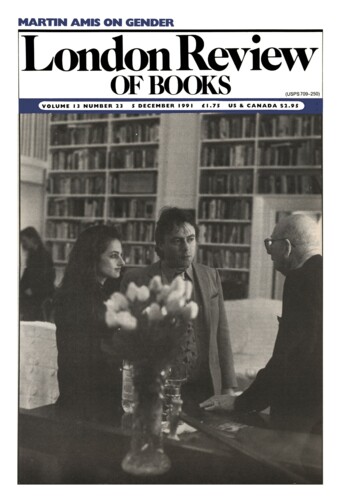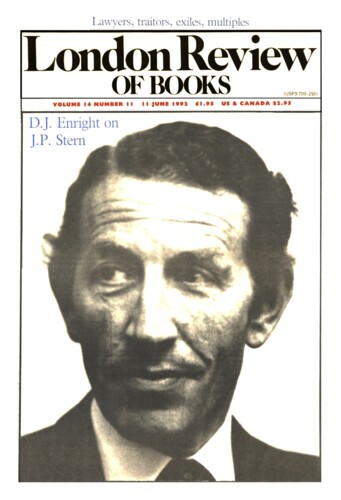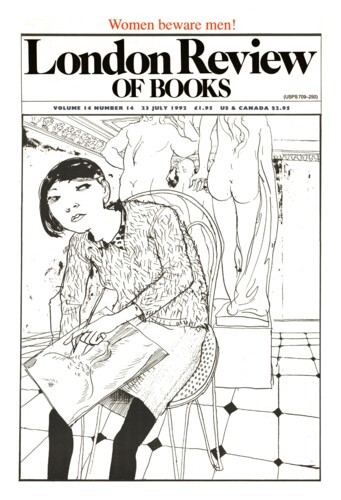Australian Circles
Jonathan Coe, 12 September 1991
Both of these Australian novels describe circles. Carey, forsaking the confident historical sweep of Oscar and Lucinda and Illywhacker to focus once again on the horrors of modern suburbia, traces the vicious circles of a family history in which successive generations are debilitated by a legacy of abuse. Rodney Hall tells of a convict at large in New South Wales in 1838, caught up in larger, even more powerful cycles of captivity and exploitation, until he finds temporary sanctuary with an Aboriginal tribe and becomes ‘the very centre of their circle’. Both novels end with violence: but only Carey’s has the nervous optimism to suggest that this might provide a means, however damaging, of breaking loose from an imprisoning pattern.





